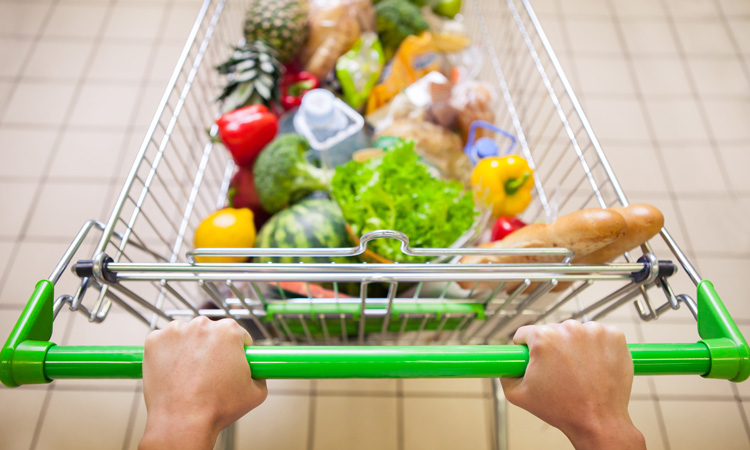Food Foundation report shows supermarkets falling short on sustainability
Posted: 12 November 2020 | Joshua Minchin (New Food) | No comments yet
Less than half of UK supermarkets issue targets for the sale of healthy food and plant-based protein alternatives, prompting the Food Foundation to call for action.


Plating Up Progress, a new report issued by the Food Foundation, has exposed shortcomings within the food industry on matters such as healthy eating and sustainability – particularly in supermarkets.
The new report finds that only four of the 11 supermarkets have public targets on either the percentage of food sales that are healthy, or for increases in sale of fruit, veg or plant-based protein products. 1
The report does, however, praise the leadership of some in the field, including Sainsbury’s and Marks & Spencer’s for their commitment to reporting the percentage of sales that comes from healthy products. Tesco’s leadership also aims to halve the environmental impact of the average shopping basket, and Lidl reports a 20 percent increase in sales of veg between 2017 and 2019. 1
The story was worryingly similar when it came to restaurants. Only three out of 15 major restaurants and caterers that were surveyed by the report had public targets or data available on either the percentage of food sales that are healthy, or report on fruit and veg sales. 1
According to the Plating Up Progress report, none of the companies have clear published targets or data for increasing sales of plant-based proteins, although several are introducing new menu options as alternatives to meat. 1
Only 30 percent of major restaurants and caterers have any publicly available data on their scope 3 greenhouse gas emissions (relating to food production in their supply chains) which the Food Foundation has said is of “particular concern, considering that food and agriculture accounts for around 30 percent of all global emissions”.
In light of the report’s findings, the Food Foundation is calling on food businesses to set targets for shifting revenue towards producing and selling healthier and more sustainable food. The Food Foundation is urging for reporting on these targets to be made mandatory by policymakers and for investors to include performance against these targets as part of their engagement and investment strategy.
Anna Taylor, Executive Director, The Food Foundation, said: “The challenges we face are formidable and understanding the progress food companies are making and what targets they are setting is key. We need clear direction from both investors and Government to demand that companies report on these metrics if we are to see lasting change and if those companies with more ambitious health and sustainability commitments are to flourish.”
Nilani Sritharan, Group Healthy Living Manager at Sainsbury’s, added: ”We want to be sure that we are doing the right thing and that in pursuing one potential solution we are not creating issues elsewhere.
Understanding the full impact of any action requires robust data, research, and trial and error, which takes time to gather and build, Sritharan said. For example, better data – and the infrastructure for sharing that data – will enable transparency across supply chains, allowing more informed decisions to take place.
References
1. https://foodfoundation.org.uk/wp-content/uploads/2020/11/Plating-up-Progress-2020.pdf









